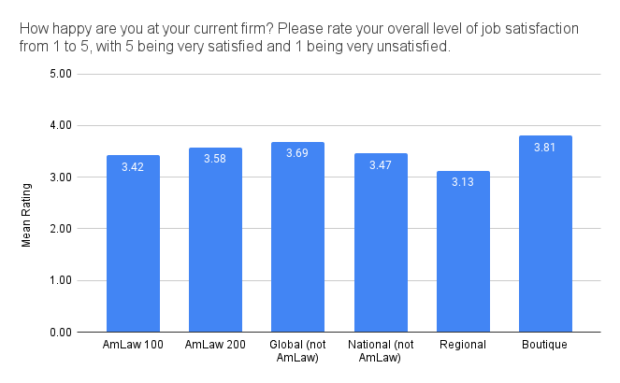Lawyers
often
rely
on
a
number
of
legal
professionals
in
order
to
more
efficiently
complete
legal
tasks.
Many
lawyers
employ
secretaries
who
handle
administrative
tasks,
and
some
attorneys
employ
paralegals
as
well
who
handle
basic
legal
work
associated
with
files.
In
the
past,
I
appreciated
the
help
of
secretaries
and
paralegals
who
made
my
job
easier
by
handling
some
of
the
basic
tasks
associated
with
running
a
law
practice.
However,
paralegals
can
make
mistakes,
usually
because
they
have
less
legal
experience
since
they
did
not
attend
law
school
and
do
not
have
the
same
wealth
of
knowledge
that
most
lawyers
possess.
Lawyers
should
not
excuse
mistakes
made
by
paralegals
when
a
lawyer’s
name
is
on
the
papers
filed
with
a
paralegal’s
errors.
Earlier
in
my
career,
I
worked
on
a
relatively
routine
matter.
However,
when
I
got
the
papers,
I
noticed
that
there
were
mistakes
in
how
the
papers
were
written.
The
case
was
based
on
a
lesser-used
provision
in
the
law,
and
I
had
never
before
in
my
career
encountered
a
case
that
had
been
initiated
on
this
basis.
After
reading
the
statute
upon
which
the
case
was
based
and
after
researching
the
provision
on
Lexis,
I
knew
that
the
timing
of
a
given
application
was
wrong
and
that
it
required
information
had
been
excluded
from
the
papers.
I
ended
up
drafting
opposition
papers
based
on
the
mistakes
made
by
the
other
side,
and
I
cited
a
voluminous
number
of
cases
and
other
authorities
to
show
that
the
other
side
really
messed
up.
It
was
possible
that
the
court
would
excuse
such
mistakes,
since
courts
sometimes
exercise
leeway
to
excuse
technical
issues
in
the
interests
of
justice.
However,
I
found
numerous
instances
in
which
courts
dismissed
actions
because
of
such
technical
issues,
which
would
be
great
for
my
client
since
I
was
defending
this
action
on
my
client’s
behalf.
Eventually,
the
lawyer
whose
name
appeared
on
the
error-filled
papers
reached
out
to
me.
He
said
that
his
paralegal
drafted
the
documents
and
that
was
why
so
many
errors
were
included
in
the
papers.
The
lawyer
requested
that
I
consent
to
amended
papers
as
a
courtesy
so
that
hopefully
the
court
would
be
more
inclined
to
not
dismiss
the
case,
and
presumably,
this
lawyer
could
save
face
in
front
of
his
client.
I
am
the
type
of
lawyer
who
likes
to
extend
courtesies,
but
in
this
instance,
accepting
amended
documents
would
lead
my
client
to
forgoing
substantive
arguments.
I
ended
up
declining
to
accept
the
amended
papers,
which
put
my
adversary
in
a
difficult
position.
He
attempted
to
rectify
the
errors
in
his
reply
papers,
which
is
the
tactic
of
many
lawyers
who
mess
up
their
moving
papers,
but
this
tactic
is
not
always
successful.
Reply
papers
are
not
supposed
to
be
used
to
correct
errors
found
in
moving
papers,
and
this
exposed
the
errors
made
in
the
initial
submission.
I
am
not
sure
how
my
adversary
missed
all
of
the
errors
made
in
the
moving
papers.
Some
were
glaring
errors
that
pretty
much
every
lawyer
reading
the
papers
would
recognize
instantly.
I
know
that
my
adversary
ran
a
high-volume
practice,
and
this
was
likely
the
reason
why
this
lawyer
employed
paralegals
in
the
first
place.
However,
since
this
lawyer
signed
the
papers,
he
is
just
as
responsible
as
the
paralegal
(and
perhaps
moreso)
for
the
errors
contained
in
those
papers.
All
told,
I
know
firsthand
that
paralegals
can
be
a
helpful
addition
to
a
legal
team,
and
I
do
not
want
this
article
to
be
construed
as
arguing
that
paralegals
should
not
be
employed
to
complete
legal
tasks.
However,
lawyers
need
to
closely
supervise
their
paralegals
to
ensure
that
their
work
is
error-free
since
lawyers
should
not
be
able
to
excuse
errors
because
they
are
attributed
to
a
paralegal.
 Jordan
Jordan
Rothman
is
a
partner
of
The
Rothman
Law
Firm,
a
full-service
New
York
and
New
Jersey
law
firm.
He
is
also
the
founder
of
Student
Debt
Diaries,
a
website
discussing
how
he
paid
off
his
student
loans.
You
can
reach
Jordan
through
email
at
[email protected].

















 Kathryn
Kathryn